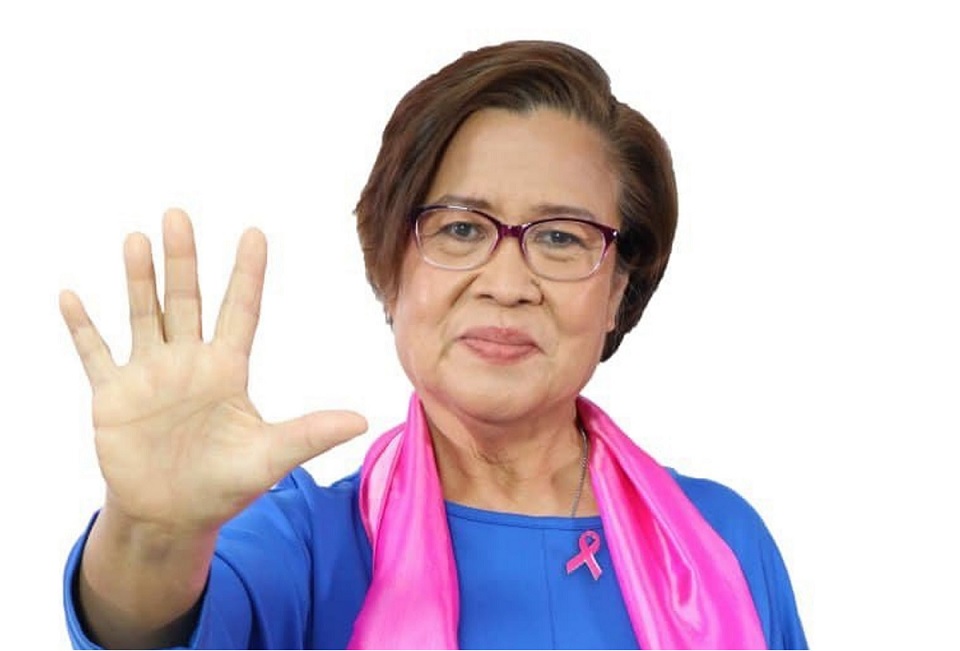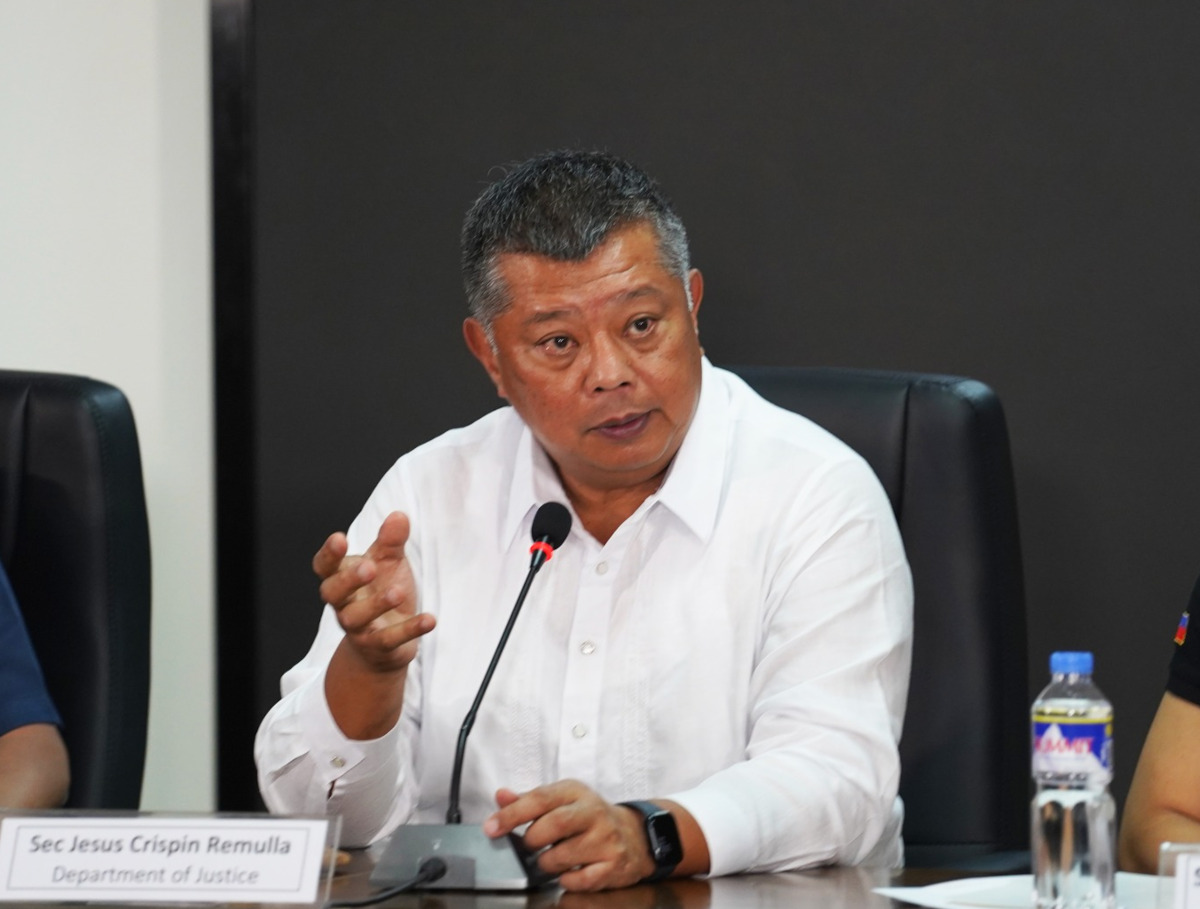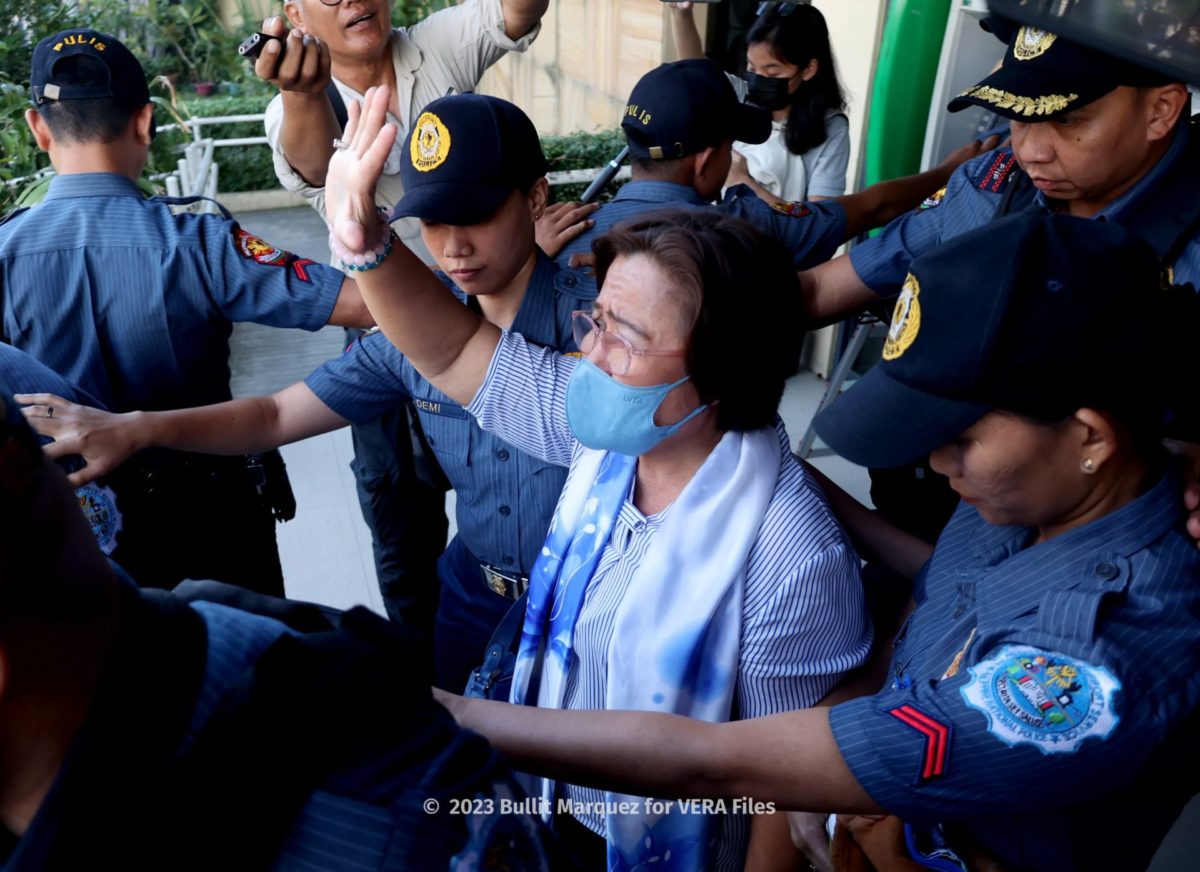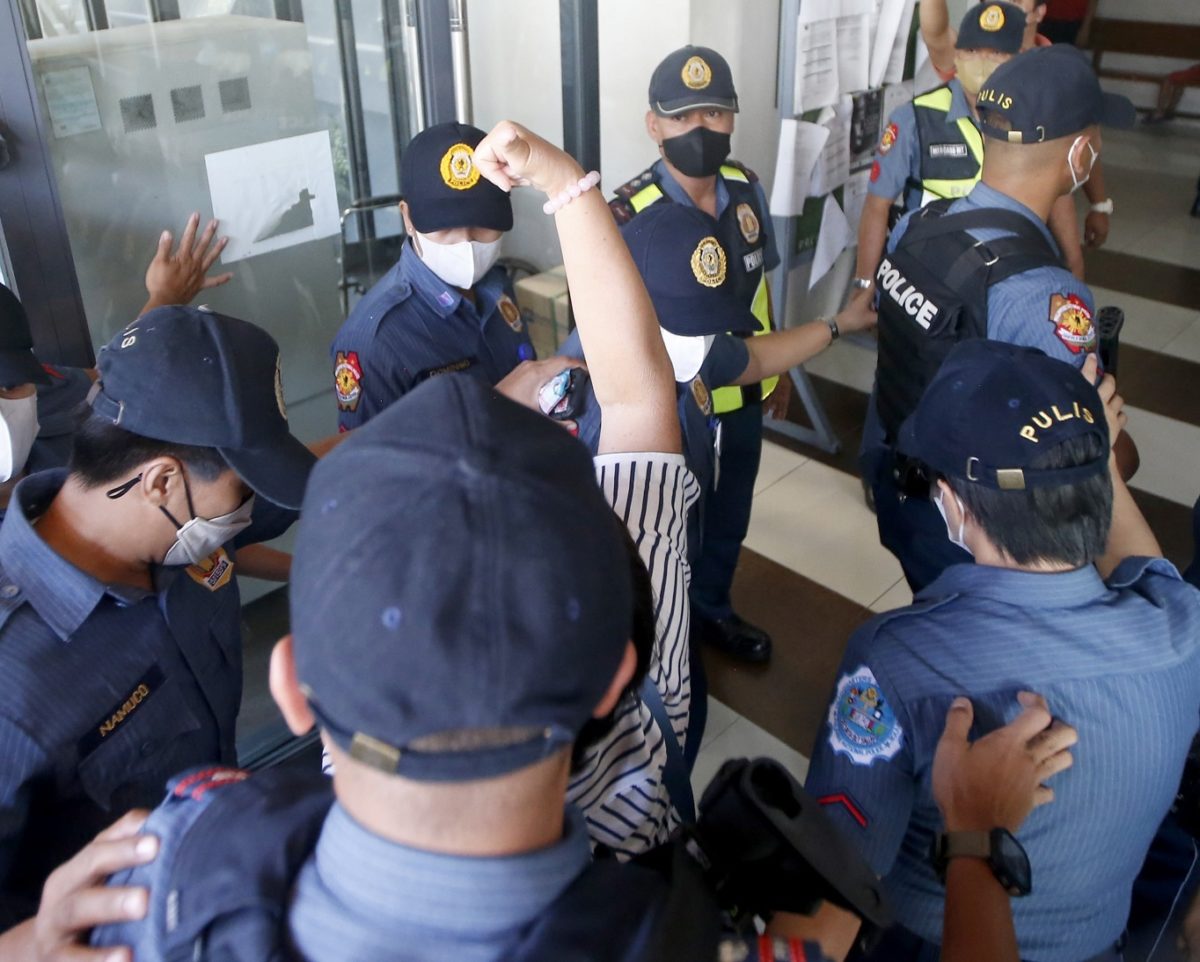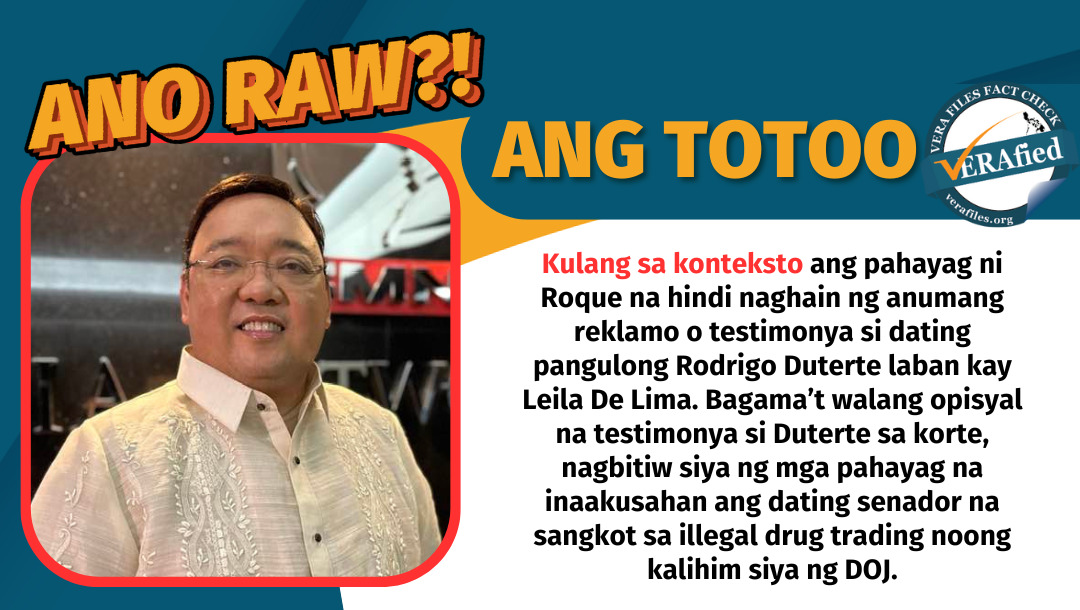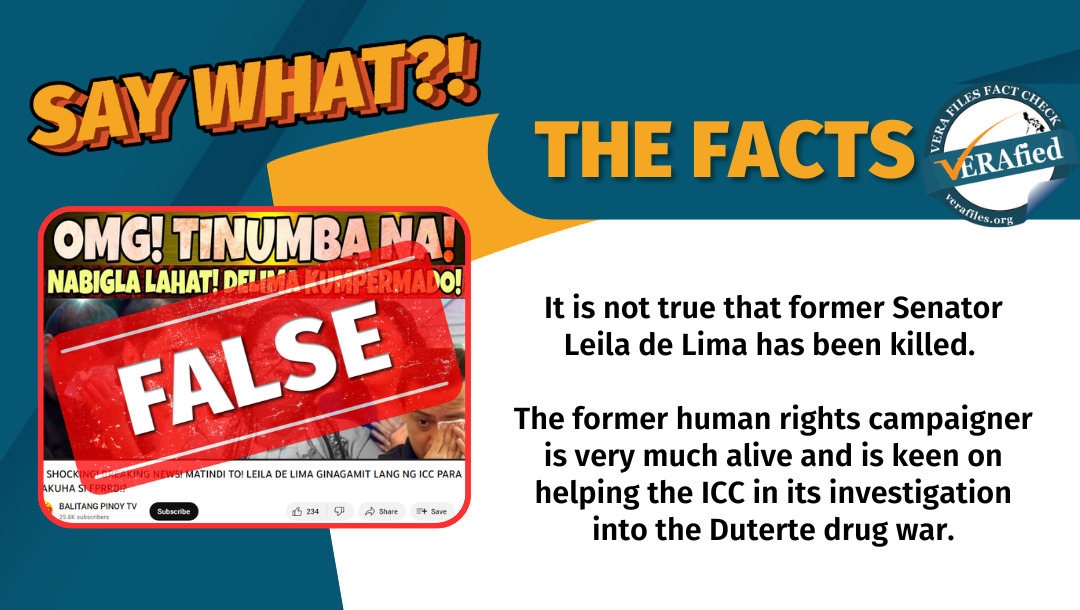It is a fait accompli. The world is intensely observing the Philippine government how it will resolve the counterfeited cases against Leila de Lima.
The root of that incarceration is a story the world knows fully well. It began from the juvenile pique of a self-important bully. Rodrigo Duterte felt he was put to shame in his own city for the Davao Death Squad investigations.
Leila’s 2009 investigation had a tenacious tracking instinct. She already was on the right track like a bloodhound – the graveyard in Davao city of those eliminated upon orders of the Duterte family. The evidence now in the hands of the International Criminal Court even confirms De Lima’s findings.
After Duterte, the more the world is even watching how democracy will be restored once again, De Lima’s liberty being one of the two major hinges to world recognition of the Philippines.
A review of the annual foreign delegations visiting De Lima in her jail cell must give Philippine authorities a tinge of shame on how it has reduced our country into a quasi democracy of vengeful politicians who are the cause of the breakdown of law and order.
One month after Duterte had her arrested in February 2017, the European Union parliament passed a resolution that highlighted the case of De Lima. It recommended a temporary withdrawal of the Philippine status in the EU’s Generalised Scheme of Preferences (GSP+). The GSP+ is a trade incentive the EU awards to developing countries where the EU cuts import duties to zero provided the trading country practices good governance and human rights.
In July 2017, 12 members of the EU parliament visited “Duterte’s most outspoken critic” and said the purpose of the visit was to “express concern.” That was a sober statement but it was more than a fair warning that the EU was watching.
On that same month, openDemocracy, an independent international media platform headquartered in London, already warned of a “sneaking authoritarianism” in the Philippines. In a piece entitled “Silencing Leila de Lima,” openDemocracy spoke gravely about the extrajudicial killings under Duterte:
“But the violence of Duterte’s regime could have been foreseen: it is a nationwide extension of his alleged ‘death squad’ approach in Davao City, where he was mayor for almost 20 years. We know this in part because of Leila de Lima, who in 2009 investigated killings in this city as chair of the Commission for Human Rights.”
In October 2017, the governing council of the Inter-Parliamentary Union, in a meeting in St. Petersburg, Russia, adopted a special resolution on Leila de Lima. An IPU delegation had visited her in May 2017. In several references to her, the resolution said it:
“Calls on the relevant authorities to release Senator de Lima immediately and to seriously consider abandoning the legal proceedings should serious evidence not rapidly be forthcoming; underscores in this regard that the mission report amply shows that the steps taken against Senator de Lima came in response to her vocal opposition to President Duterte’s war on drugs, including her denunciation of his alleged responsibility for the extrajudicial killings, and that there is no evidence to justify the criminal cases against her;”
“Decides to send a trial observer to monitor and report on respect for fair trial standards in the case before RTC Branch 205, should the trial proceed;”
“Is shocked at the public campaign of vilification by the highest state authorities against Senator de Lima portraying her as an ‘immoral woman’ and as guilty, even though a trial has yet to commence.”
In November 2018, the UN Working Group on Arbitrary Detention found that her imprisonment “lacks a legal basis” and was a form of reprisal due to her human rights work.
In February 2019, Human Rights Watch, Amnesty International, and FORUM-ASIA called on the Philippine government’s imprisonment of De Lima, that it “should drop the politically-motivated charges, her two years in custody showing the length the Duterte administration will go to stifle dissent.” The three called her detention as arbitrary.
In November 2020, the international pressure was coming from ASEAN neighbor countries. The ASEAN Parliamentarians for Human Rights released a solidarity statement calling for De Lima’s immediate and unconditional release.
Two months later, in February 2021, after De Lima has been detained for four years, United Nations human rights experts from the Office of the High Commissioner on Human Rights say her detention has no legal basis. For an international body to say that openly before the world is quite a slap in the face of a despot like Duterte. That is why he reacts each time with his vulgar s.o.b. profanities.
De Lima’s case should be in the assessments of the Duterte government. In 2022, the US State Department released its “Philippines 2022 Human Rights Report.” On page 13, the following reads:
“Five years after her arrest, former opposition senator Leila De Lima remained in police detention on drug trafficking conspiracy charges. Prosecutors used a variety of legal tactics to delay arraignment, including filing new and amending previous charges. Prosecutors dropped other charges against De Lima during the year, including bribery charges dropped on August 9 after potential prosecution witnesses recanted their claims. Throughout the year, several key state witnesses in the cases against De Lima recanted their testimony, and some claimed they were compelled to testify by government officials. In August foreign visitors were allowed to visit De Lima in custody for the first time since 2017, but later that same month Filipino human rights advocates who sought to visit her were denied entry to the prison.”
In August last year, the Philippine National Police barred a delegation from the US Congress from visiting De Lima “for lack of a court order.” On August 19, after having received a court order, Senator Edward Markey and 7 other officials were finally allowed to visit De Lima. No media and social media coverage or audio and video recording were allowed.
In October 2022, the Markey delegation signed a letter addressed to secretary of justice Jesus Crispin Remulla, to “release her from her unjust detention, officially recognize the lack of evidence against her, and drop all charges.”
In February 2023, 18 envoys of the EU Parliament Sub-Committee on Human Rights were granted a court order to visit De Lima. The delegation was powerhouse: representatives of various political parties from around Europe joined 7 parliamentarians from various EU member countries.
The result of that visit was the final warning: freeing de Lima will allow the Philippines to keep the EU’s GSP+ trade incentives. Will the Marcos government adhere to the big IF imposed by the EU? Keeping De Lima in jail will satisfy no one but the bloodlust of Rodrigo Duterte. Freeing De Lima will benefit the entire Philippines, already reeling from poverty from incredible government corruption. The EU condition includes as well the country’s rejoining the ICC. This means the EU is interested in seeing a successful prosecution of Rodrigo Duterte et al for crimes against humanity.
On February 28, 2023, the German newspaper Deutsche Welle (DW) reported the result of that visit: “The populist former President Rodrigo Duterte, who left office last year, frequently criticized Brussels over what he saw as its lecturing, while the EU was unequivocal in its condemnation of his brutal drug war.”
“Trade with EU rests on two pillars.” Duterte must stand trial before the ICC. De Lima must be released. “This will not change under any new scheme.”
There is a third pillar. It is unwritten and unexpressed like the elephant in the room. The continued detention of Leila de Lima is the most obvious and potent proof that the justice system in the Philippines is not working.
The views in this column are those of the author and do not necessarily reflect the views of VERA Files.
